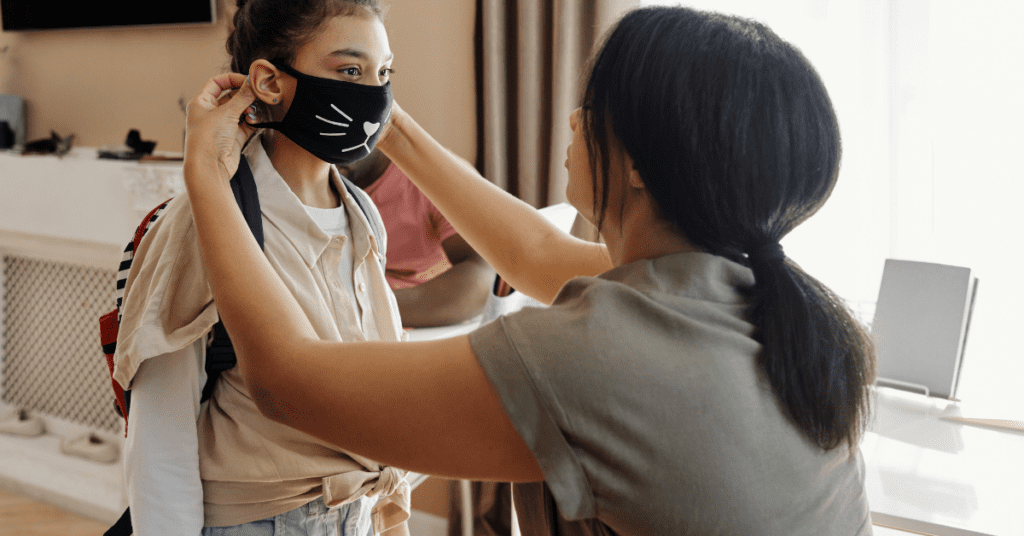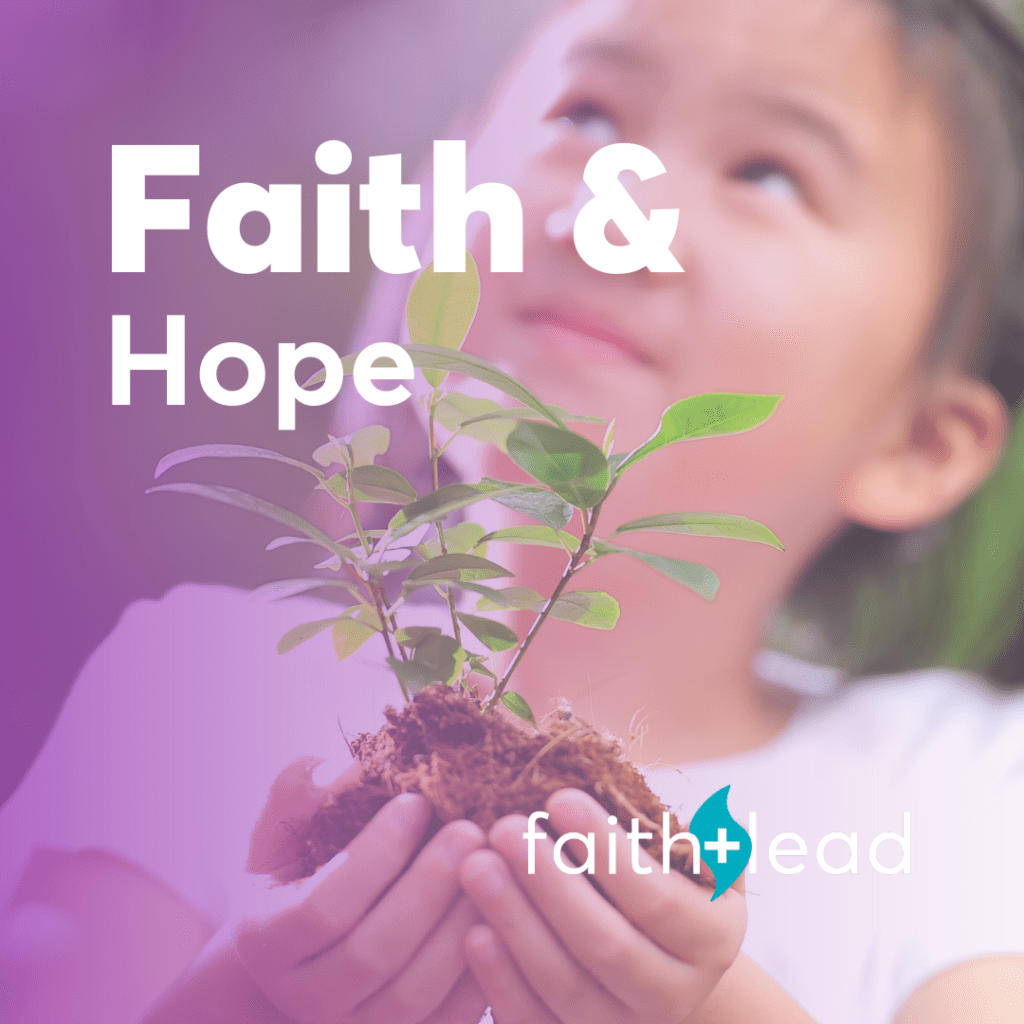Sarah’s book God Holds You: A Pandemic Chronicle is available on Amazon.
Into the wilderness
On March 15, 2020, the church where I am a pastor switched to virtual worship for the first time because of the pandemic. The assigned scripture was from Exodus, near the beginning of the people of Israel’s journey through the wilderness. It recounted how they tested Moses and God, asking, “Is the Lord really with us, or not?”
God provided, teaching Moses how to lead a frightened people, and miraculously giving them water from a rock to quench their thirst.
You could not have picked a more appropriate text for that day. Indeed, the history of God’s people in the wilderness was one that my congregation returned to again and again as we wandered through the pandemic. As we connected our story to that story, we were strengthened for our journey. It reminded us to trust that God’s blessing would be found in unexpected places, and that we would only get through it if we got through it together.
The wilderness stays with us
As I write this in December 2022, the worst of the pandemic is receding in the rearview mirror. I sense that collectively, we have a strong temptation to put our foot on the gas and speed into the future, leaving those difficult years in the dust.
That is impossible. The pandemic has shaped us in ways we probably can’t even yet perceive. Having lived through it, we will always be affected by it. What James Baldwin wrote so powerfully about racism, applies more broadly: “the great force of history comes from the fact that we carry it within us” (James Baldwin: Collected Essays, 723).
Reflecting on the pandemic is an essential part of our healing and formation as a people. When we return to those days and remember them for the heartbreaking, beautiful, grievous, inspiring, and grace-filled moments they contained, we will also air out pain, recommit to the values that the pandemic clarified, and remember what it means to trust that God is with us.
Remembering together
I recently took my kids to a Christmas play with neighbors. Walking in, the other mom and I chatted about how it felt so good to dress up and go out. We passed a poster for an upcoming Nutcracker performance, and she asked if our kids had ever seen it.
“Not in person,” I replied, and then I wondered out loud why I hadn’t taken them.
“Well, it wasn’t really an option for a couple of years,” she gently reminded me, because truly, I had forgotten.
And there it was. Out of the blue. Pandemic grief. Sorrow pooled deep in my chest. Even as I watched the kids explore the playhouse together, delighting in the high ceilings and red carpets, I also teared up thinking of that interrupted year of their childhood, when they didn’t get together with friends or go out at all.
Remembering the pandemic has also had the opposite effect. That same weekend, as my family put up our Christmas tree, I commented how glad I was that we didn’t need to do another COVID Christmas. My husband reminded me of the sweetness of the unhurried Christmas of 2020, with no flights, no concerts, and nowhere to be. That meant we could adopt a pace that had its own miraculous effect. We took long walks, just for fun, and lingered over meals. The peace that I felt in remembering that Christmas was as surprising as the sorrow had been earlier.
The power of collective remembering
In both these cases, the presence of someone else helped me remember more fully. It also helped me integrate the pandemic, with a range of experiences, into the present. Of course, we can each reflect on the pandemic on our own, privately, and I hope we all do. But it is also important that we remember together.
When we remember together, our identities are formed and reformed. Our bonds are created and strengthened. If we are honest and make space to listen to one another, collective remembering can be a powerful experience of community. It can also be a way of identifying differences in our individual memories, providing an avenue for healing past trauma. Our stories weave together, and we realize we are part of a whole, held together by God’s grace.
The church remembers
The church is especially suited for bringing people together to remember the pandemic, for the church’s identity is based on collective remembering. We gather to tell stories about how God acted in history, and use those stories to inspire faith for the present and hope for the future.
When we do this well,
- we remember with honesty and accuracy,
- we remember with openness toward those who remember differently, realizing no one has the full story,
- we remember not only what we did, but what God did.
This last piece is especially important for the church. For as we bring to mind what God did then, we can trust God now.
Gather to reflect
For the first thirteen months of the pandemic, I wrote nightly reflections with the aim of conveying God’s steady presence to a reeling world. I compiled those writings into a book, God Holds You: A Pandemic Chronicle, and I have started using my reflections with small groups to reflect on the pandemic.
I ask questions like:
- When did you first know the pandemic was real?
- Throughout the pandemic, how did joy and sorrow exist together?
- When did you feel especially vulnerable to the virus, to racism, to poverty, or to something else, and how did you get through it?
- Where did you find grace?
- What values became clear?
- And, importantly, how did you know God was with you?
These gatherings have confirmed my hunch that the act of remembering the pandemic together—as church—is invaluable. It helps us grieve, heal, build community, and commit to the values that we discovered were so important. It also helps us lay the groundwork for future generations to look back on what we have done and use our stories to make sense of their own.
Just as telling the Exodus story of wilderness gave solace, direction and hope to my congregation during the pandemic, telling our pandemic history together will help us see that God is with us in all the wildernesses of our lives, and help us trust God into the future.
Ideas for group reflection
- Make a brief timeline of important moments from the pandemic. You may find it useful to consider different categories like virus, society, church, and personal.
- Pick one time from the pandemic for everyone to try to remember in detail. Perhaps the first day that school/work shut down; or the first time someone in your community got COVID-19; or Christmas 2020; or something else.
For five minutes, individually write down everything you remember about that time. Then share insights with each other. Notice how your memories are similar and how they are different.
- Show and tell. Take a relic of the pandemic, such as a mask, the mug you often drank from, a book that was important to you, etc … and describe what it meant to you.
- The pandemic intersected with major political and social movements. With those in mind, have everyone complete this sentence individually: During the pandemic, I valued _______________. (You may have many things here). Then share. Make sure you truly listen to one another and ask only clarifying questions, without judgment.
- Reflecting on the pandemic overall, what helped you trust that God was with you? Think about church, family, friends, society, nature, etc … Represent this in an artistic way (poem, drawing, dance, music, flower arrangement), and share.


